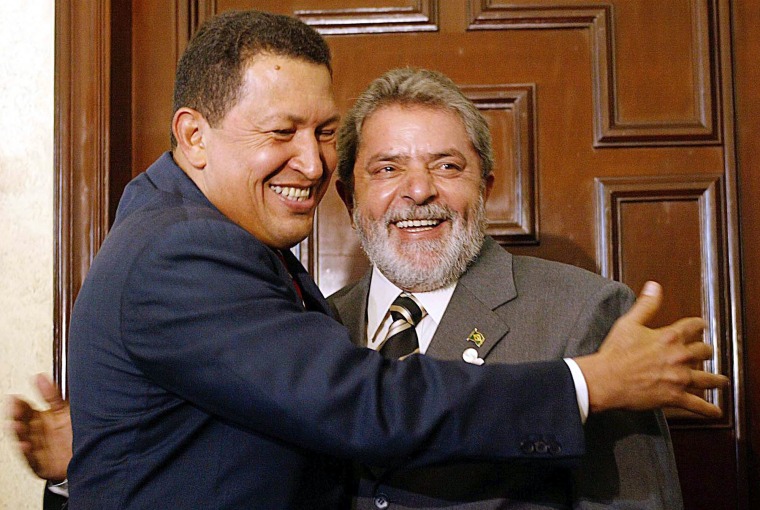The United States made concessions on free trade and battling corruption, smoothing tense relations with North and Latin American leaders as the 34-nation Summit of the Americas ended Tuesday.
Canada and Mexico won the biggest prizes from the United States. President Bush told Canada it will be eligible for a second round of U.S.-financed reconstruction contracts in Iraq that the administration valued at about $4.5 billion.
A day earlier, Mexican President Vicente Fox accepted an invitation to visit Bush’s ranch in Texas and praised his proposal that would allow migrants to work temporarily in the United States.
Others also welcomed Bush’s plan. Honduran President Ricardo Maduro said it would “allow us to have closer ties to Latin Americans in the United States.”
But countries complained the region was not doing enough to battle poverty. During negotiations, Prime Minister Ralph Gonsalves of St. Vincent asked: “What’s the use of freedom if people are poor?”
Lula calls for 'new ... concept'
Brazilian President Luiz Inacio Lula da Silva said governments need “a new development concept” that distributes income fairly.

“If we want a world that is safe and stable, we must strive toward a just and fair world,” he said.
Outside the meeting site, in the mountains of northern Mexico, about 100 anti-globalization protesters clashed with police, hanging an effigy of Bush on a security barrier and burning it before a wall of riot police.
Bush arrived at this week’s summit to find many nations publicly criticizing his free trade stance.
The leaders agreed to support a hemisphere-wide trade area without setting a firm deadline, a concession to Brazil and Venezuela.
FTAA talks
The United States had sought a 2005 deadline for the Free Trade Area of the Americas agreement. The summit’s final declaration calls for following the FTAA’s “established timetable,” with no specific date mentioned.
Although the original timetable called for an accord by 2005, recent FTAA talks have stalled on the prickly issues of removing agricultural subsidies and intellectual property rights. Many have questioned whether the original timetable is still realistic.
Despite expressing reservations about the declaration, Venezuelan President Hugo Chavez said he would sign the document. He pushed summit participants for a humanitarian fund that could be used to help countries during financial and natural disasters, and leaders said they will the proposal.
In addition, the summit declaration does not call for banning corrupt governments from future summits, as the United States requested. Instead, the declaration only calls for consultations on countries that don’t meet the requirements of the Inter-American Convention against Corruption.
Fighting disenchantment
Washington’s concessions appeared aimed in part at reversing the region’s increasing disenchantment with U.S. policy.
In return, countries pledged to “intensify our efforts and strengthen cooperation” to fight terrorist threats. In the last few weeks, Mexico canceled at least two flights because of security concerns.
Before the meeting, Brazil protested new U.S. security measures that require the fingerprinting and photographing of arriving foreigners by doing the same to Americans traveling to Brazil.
Argentina also sparred with U.S. officials who criticized Argentine officials for failing to meet with Cuba’s dissidents during a visit to the communist island.
Venezuela’s Chavez has criticized U.S. support for a referendum on his recall from office, saying Washington should stop “sticking its noses” in his country’s affairs.
Contrary voices
On Monday, Chavez refused to attend the summit’s official dinner and called the gathering of American leaders a “waste of time.”
“We have to change the model,” Chavez said, referring to the free-trade focus the United States and other industrialized nations have placed on economic development. “Let’s recognize that we are on a very bad path.”
After listening to Caribbean leaders lament the millions who die of AIDS in their region, Bush said leaders need to “work on prevention and treatment” and ensure that countries can distribute drugs as they become available under new international rules.
Many nations urged leaders to make sure the summit’s goals become a reality once they leave Monterrey.
“There seems to be an absence of political direction once the summit comes to an end,” Gonsalves of St. Vincent said.